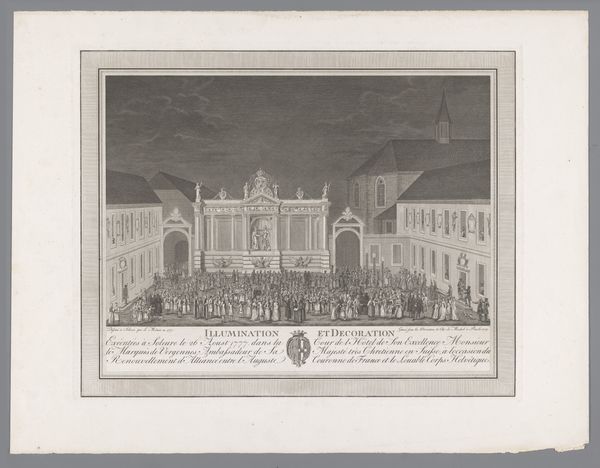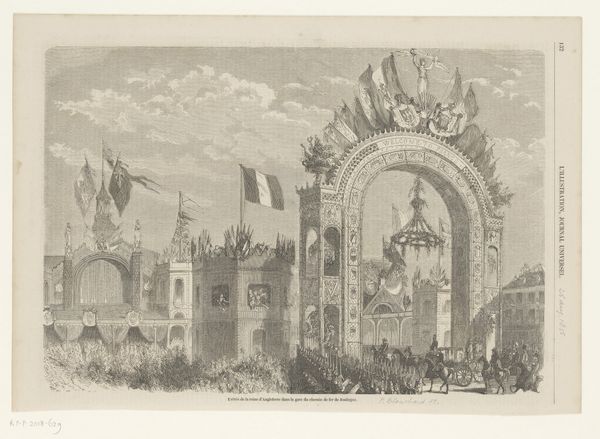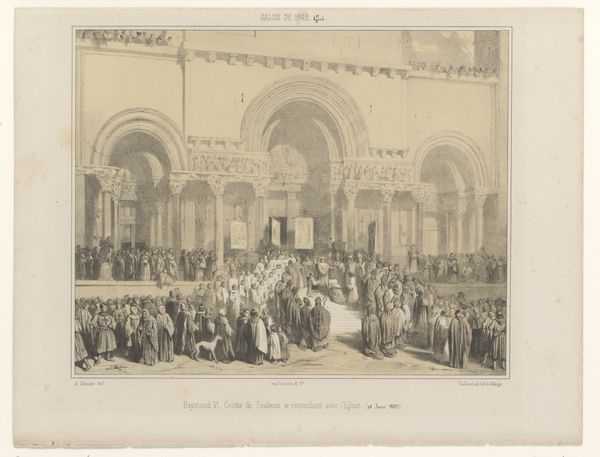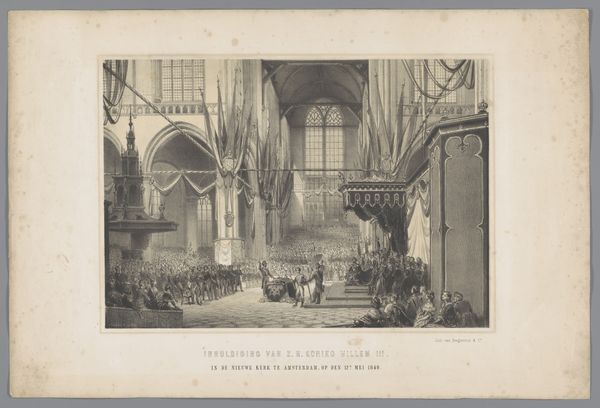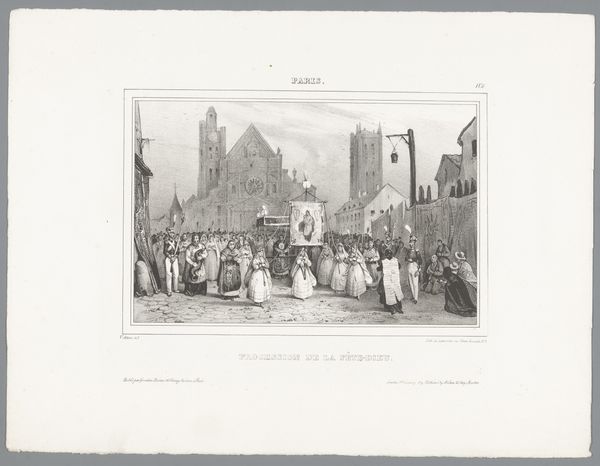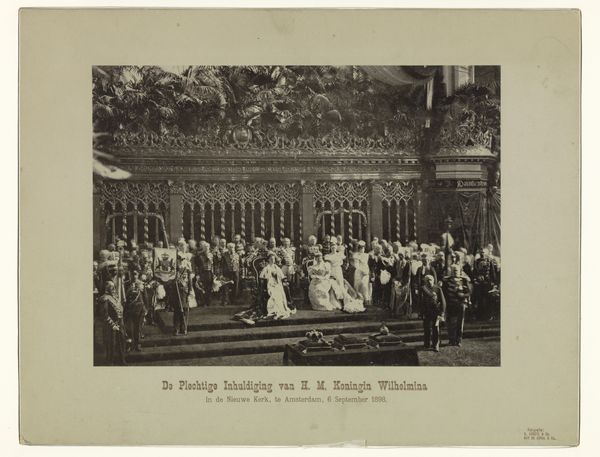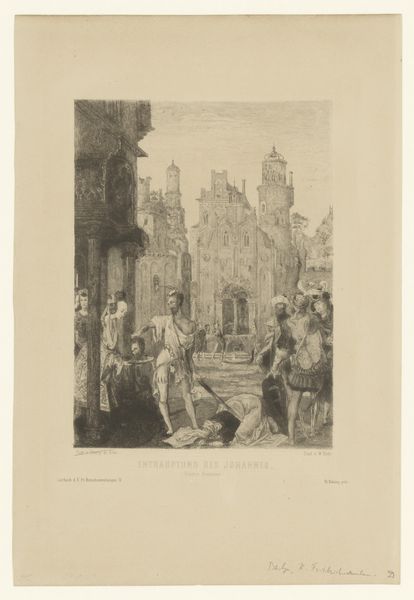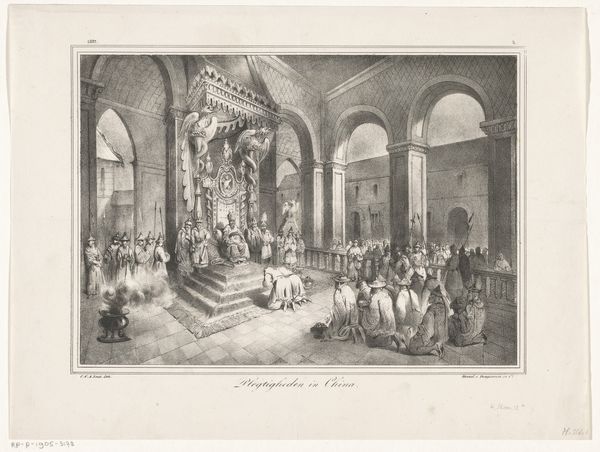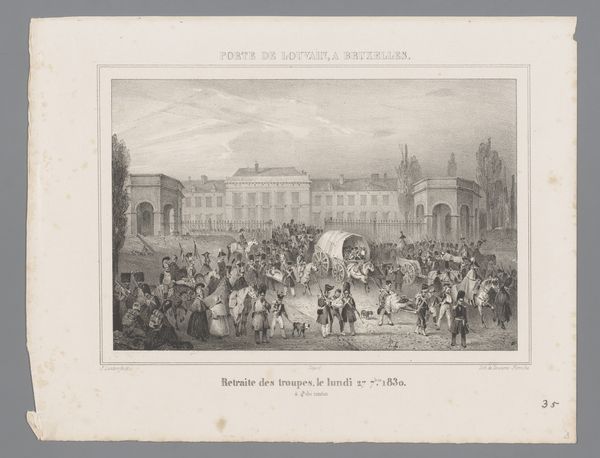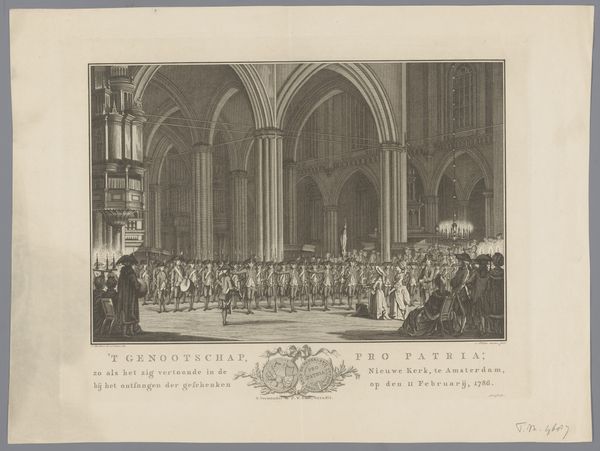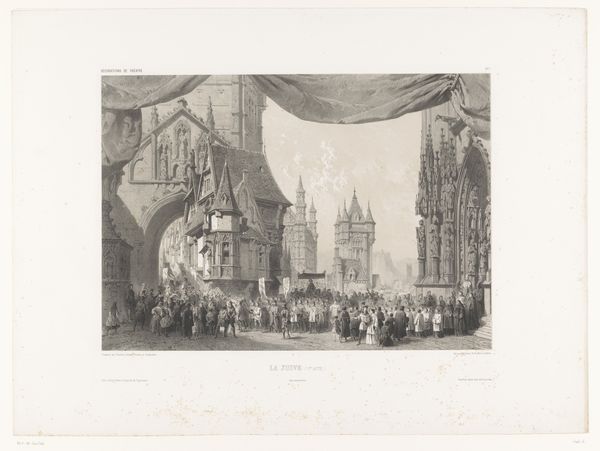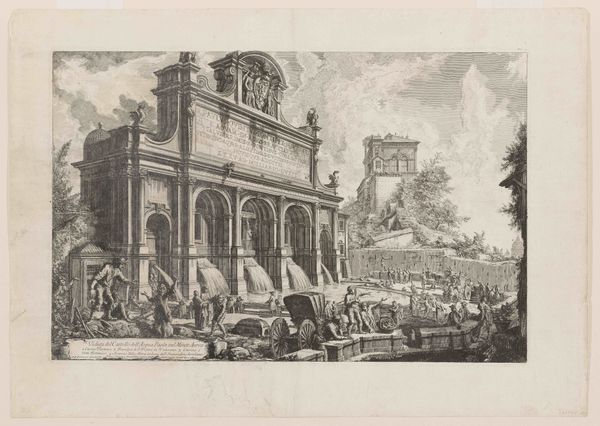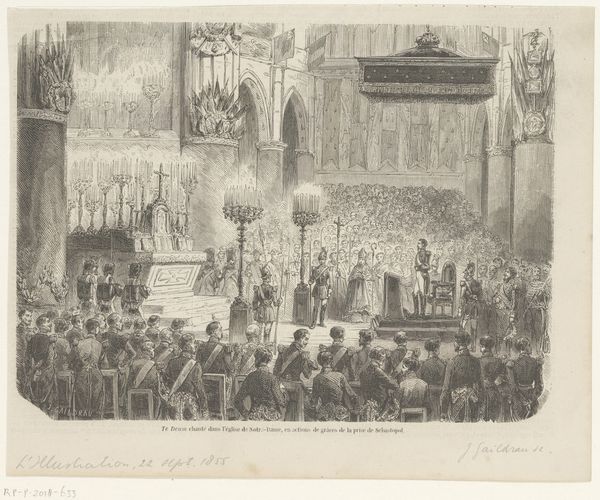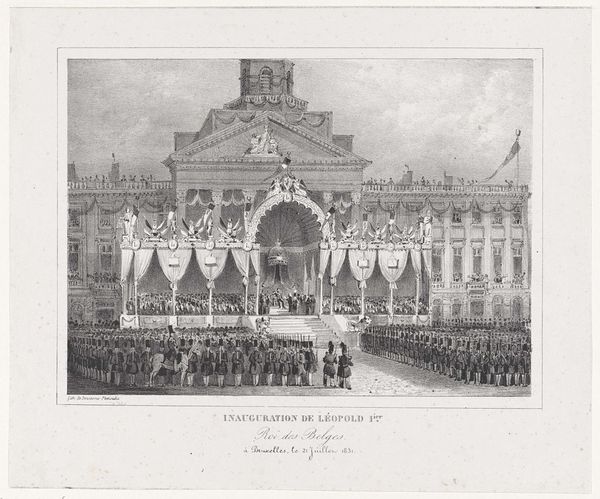
print, engraving
# print
#
group-portraits
#
romanticism
#
cityscape
#
watercolour illustration
#
genre-painting
#
history-painting
#
engraving
Dimensions: height 234 mm, width 306 mm
Copyright: Rijks Museum: Open Domain
Paulus Lauters created this print of King Leopold I's arrival in Brussels using a technique called lithography. It was a relatively new method at the time, one that democratized image-making. Lithography relies on the simple idea that oil and water don't mix. The artist draws on a flat stone surface with a greasy crayon, then applies water. The water sticks to the bare stone but is repelled by the greasy drawing. When ink is rolled onto the stone, it only adheres to the drawn areas. This allows for multiple, relatively quick reproductions. Consider the social context here. The print captures a moment of royal spectacle, but the lithographic process allowed that image to be widely distributed. This speaks to the rise of mass media and its role in shaping public perception of power. It suggests how new technologies can both celebrate and, in a way, undermine traditional hierarchies. Lauters' print offers a fascinating glimpse into a society grappling with changing modes of production and representation.
Comments
No comments
Be the first to comment and join the conversation on the ultimate creative platform.
